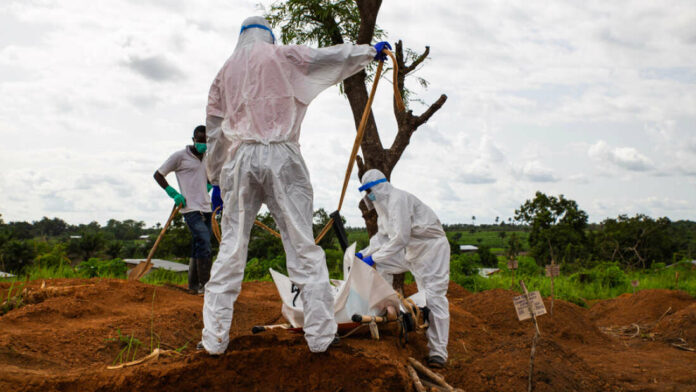The DRC recently reported a fatal Ebola case, less than six months after the end of its last outbreak.
In early October, a 3-year-old boy in the North Kivu Province of the Democratic Republic of Congo (DRC) developed symptoms of Ebola. These included anorexia, abdominal pain, weakness, breathing difficulty, dark stool and blood in vomit. He passed away from the symptoms on October 6th. Health authorities then sent his samples to the National Institute of Biomedical Research (INRB) laboratory in Beni and later to the Rodolphe Mérieux INRB Laboratory, Goma. By October 8th, it was confirmed that the boy was infected with the Ebola virus.
In a recent statement, the World Health Organization (WHO) announced three more deaths that occurred prior to the 3-year-old. All three cases were neighbours of the boy. The deaths occurred on 14, 19 and 29 September. Although all had symptoms of Ebola, none underwent testing for the virus. Moreover, no safe burials took place. Therefore, experts are concerned about the potential spread of the disease and a possible new outbreak in the region. So far, authorities have identified a total of 148 contacts of the boy.
There is a risk of a potential spread and likely more cases.
Dr Fiona Braka, manager of emergency response at the World Health Organization’s Africa
WHO Begins Vaccination
The boy lived in Butsili Health Area which is close to Beni city, one of the epicenters of DRC’s 2018-2020 Ebola outbreak. Authorities labelled it as the country’s second-deadliest Ebola outbreak. Moreover, Butsili is about 50km from Butembo city, which reported a new outbreak earlier this year. According to health experts, it is not unusual for sporadic cases to occur after a major outbreak. The Ebola virus often remains dormant in bodily fluids such as semen, for over a year and can cause transmission. However, it is unclear whether the current deaths are related to previous outbreaks.
In response to the new cases, WHO has begun a vaccination drive in the region. They have delivered approximately 1,000 doses of the rVSV-ZEBOV Ebola vaccine to cities in North Kivu. And a further 200 doses to Beni city. In the past, vaccines have played a significant role in controlling outbreaks and spreading infections.
People at risk, including contacts of the confirmed case and first responders, will be vaccinated as part of an effort by health authorities to contain the spread of the virus.
World Health Organization
Source: World Health Organization




